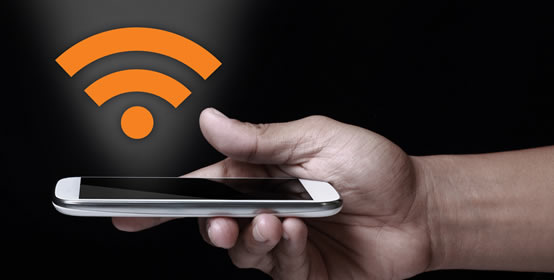
Many establishments like restaurants, hospitals, hotels, and other businesses offer public WiFi access to visitors. It is easy to assume that the public WiFi is harmless and even something of a gratuity for you and others to enjoy at your leisure.
In reality, it could be a hazard about which you are unaware and which you are entirely unprepared to handle. Before you log into a public wireless Internet connection, you should think about how safe the this WiFi really is and what dangers you could be exposing yourself to after connecting your device to it.
Public WiFi is not really risky at all if all you plan on doing with your device is reading the online news or checking the weather, for example. However, if you are like most mobile Internet users, you do far more than browsing the headlines or finding out the weather in your area. You also are busy reading your email, checking your bank account, and updating your social media accounts.
These activities call for a certain level of privacy and safeguarding that you presumably take seriously. You do not hand out your username or password to your bank account to strangers, for instance, nor do you allow random passersby access to your social networking pages.
However, when you use public WiFi, you may inadvertently be doing just that, all the while without you knowing it. Public WiFi is not secured, meaning that anyone even hackers and identity thieves can access it. Once people access it, they can easily hack into another person's secured accounts if they have the right virtual tools available to them.
Most hackers and identity thieves launch spyware into public WiFi connections that then make their way into people's wireless connections on their phones and computers. Once this malware is launched, it provides an entry point for thieves to steal your information. They can log into your email, find out your username and password to your bank account, and hack into your social media pages to transmit questionable if not illegal content across the Internet.
The simplest answer to protecting yourself from the dangers of public WiFi is simply to not use it. Avoid the temptation to connect your laptop or mobile device to an open WiFi connection when you are at the store, visiting someone in the hospital, or staying at a hotel. If your device is not connected to it, hackers and cyber thieves cannot get access to your sensitive details like logins or passwords.
In this same light, your second option would be to use your mobile data. Your carrier probably allows you so much data each month to use. Rather than allow that data to go unused, you should use it instead of connecting to public WiFi to check your email or bank account or update your social media pages.
Your last option would be to download your own virtual private network, or VPN. A VPN allows you to establish a password to the connection and limit who has access to it. It prevents cyber hackers from gaining access to your connection.
It will also provide you with the safest means of browsing the Internet beyond reading the news or checking the weather.
Free public WiFi may seem like a gift to you and other visitors to an establishment like a hotel or restaurant. In reality, this free connection may be more of a danger than a gratuity. Open public wireless Internet connections are easy pickings for cyber thieves who want to steal as much of your information as possible.
Once they have hacked into your device, they can gain entry to your bank account, social media pages, email, and other off-limit accounts. You can protect yourself from this crime by using the mobile data provided by your carrier or by downloading and using your own VPN connection.
The conveniece of public WiFi must not overshadow the importance of protecting your private information. Take the time to educate yourself to the alternatives, and make the necessary changes to your smart device's settings.